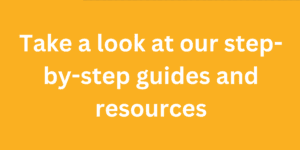As the new academic year begins, back-to-school shopping is well underway, and, as you review your student’s school supply list, you’ll likely find one necessary school supply listed: a planner. This vital resource can keep students organized as they learn how to tackle what the new year brings.
Although keeping up with assignments is crucial to academic success, it can feel like a daunting task that brings much stress for students who struggle with executive dysfunction. In fact, Stanford finds that 56% of students consider homework a primary source of stress.
To stay on top of organization and support executive functioning skills, our team recommends beginning with the right executive function planner, like the Effective Students™ Planner. Choosing the right planner can alleviate stressors and prevent struggles that students with ADHD may face when trying to build healthy academic habits. There are a few key features to look for when deciding on which planner works best for your student’s needs.
To create this guide for selecting the ideal executive function planner, we leveraged our experience with students who are building their executive function habits. Read on to learn about the importance of an executive function planner and how to find the right planner for your needs.
How Poor Executive Functioning Affects Students
Choosing the right planner can set the trajectory that supports a student’s executive functioning skills. With a quality planner in hand, students can feel empowered to take control of their agenda for the school year.

Executive function, as defined by Harvard University, is a learned set of skills that allow you to:
- Plan for commitments, assignments, and goals
- Use self-control and maintain focus despite distractions
- Follow multiple-step instructions, even when interrupted
Executive function skills are often a part of self-regulation, which is a person’s ability to control their responses to situations, emotions, and more. For students, executive functioning skills differentiate between success and frustration as well as the willingness to persevere or procrastinate.
When a student doesn’t have strong executive function skills, they may struggle with completing tasks and staying focused, even if they’re passionate about the subject area.
Procrastination can also be a symptom of executive function problems, as described in this article. For students, “it can be challenging to distinguish whether executive dysfunction or procrastination are present since they share a lot of overlap, thus they can be hard to untangle, particularly when they present so similarly in the classroom environment.”
Fortunately, executive functioning is a learnable skill set, albeit one that is not typically part of the school curriculum. With dedicated training and persistence, students can learn to prioritize, start, and complete tasks. An executive function planner is a physical tool to support the development and maintenance of executive functions.
Benefits of Executive Function Planners
Having a planner that outlines daily tasks and time sensitive appointments helps students see the big picture, so they can focus on prioritizing. By efficiently coding assignments and assessments in their planner, they can break everything down and have a better idea of how to manage their workload.

Without this organizational system, school work and extracurricular activities can be anxiety-inducing, leaving students unsure of where to start—which can lead to dangerous procrastination. An executive function planner can alleviate this stress by giving students a clear path forward when it comes to managing their schedules and schoolwork.
Executive Function Planners and ADHD
People with ADHD often experience symptoms of anxiety regarding their assignments and planning ahead. Healthline reports, “About two-thirds of people living with ADHD have at least one coexisting condition. Specifically, at least one-quarter of people living with ADHD are also living with a diagnosable anxiety disorder.”
By learning executive functioning skills, people with ADHD can potentially reduce their anxiety and better handle everyday stressors. Students with ADHD cannot solve executive functioning skills simply with a to-do list or a particularly robust planner, but a specially-designed academic planner provides a massive leg up.
Executive Function Planners for Students
Students often get paralyzed looking at everything they need to get done, so a planner can help them break down tasks into smaller, manageable parts. Students with poor executive function need extra guidance and structure in their planners, though, to ensure that they use the supply effectively.
An executive function planner can help students create routines and expectations around key executive function skills. By building in the step of evaluating their to-do list every day or the night before, students can begin to stay on track. A good executive function planner will include a clear forecasting model or structure upfront, so that students can easily reference it on their own, as often as they need to.
Once students understand how to use a planner and build it into their routine, they can build in planning sessions on a weekly basis so they practice forecasting. An appropriate planner will provide the platform for students to understand, interpret, and manage the visual workload in front of them.
An academic planner built for executive functioning skills can be designed for daily and weekly use so that creating this routine is simple and easily followed.
What to Look For in an Executive Function Planner
Not all school planners are created equally. While most planners will have the same basic components, executive function planners are those specifically designed with the challenges of poor executive functioning in mind.
Keep an eye out for these key features in a good executive function planner, including:
- Weekly View – The student should be able to see everything needed for the week and weeks to come while also having space to make daily to-do lists. These to-do lists apply to homework assignments, projects, and planning for how to study for an assessment.
- Academic Year – Make sure you select a planner that is made for students, aligning with the academic calendar rather than the calendar year.
- Space For Extracurricular Activities – Students are more than just students, so their planner should reflect what they do as a whole person, including space for evening and weekend activities to be tracked. When they can plan for choir concerts, sports practices, games, and other extracurriculars, as well as homework, they’re more likely to continue using the planning system.
- Portability – The planner should be easy to carry around and take on the go. If a student planner is too bulky or heavy, the student may be more likely to leave it behind, and keeping the planner on hand is key to effectively using it.
- Monthly View – This view can be helpful for planning the overall events and most important tasks of a month, giving students a better understanding of what to expect in the upcoming weeks. Students may list big tests, project due dates, or sports games in the monthly planner view.
The best academic planner is one that will be regularly used. This means it’s helpful to look for a planner that resonates with your student. Whether that’s the structure, design, or even size of the planner, look for the features while finding one that is truly enjoyable to use, you can build positive habits.
Shop Our Popular Executive Function Planner
The Effective Students™ Planner is built specifically for students with ADHD and execution function challenges. Made for the 2023-2024 school year, the Effective Students™ Planner features a sample forecasting model, instructions on how to easily code the planner for simplicity, and study activities as well as visual prompts for consistent study techniques. This executive function planner also has dedicated fields for target number of entries per week, which helps students practice goal-setting and actively challenge themselves.
Many students report difficulty being consistent with a planner or even report not knowing how to use a planner effectively. The Effective Students™ Planner removes the guesswork for students, with clear steps outlined in the forecasting exercise. By design, our executive function planner helps students build confidence in developing reliable habits.
Shop the Effective Students™ Planner for the 2023-2024 academic year.
Find More Executive Functioning Resources for Student Success
This executive function planner guide serves as a launching point for a successful academic school year, helping you to decide what tools you need to stay on track. Sometimes, though, you need more than a planner to help get you on the right track for your goals.
Effective Students teaches students, parents, and educators how to better recognize executive functions, and then we help you improve them in painless lessons, often distilled into as few as 15 minutes per week. In addition to our other resources and services, we also offer Effective College Connection and Personalized ADHD Coaching for Students to help give students with ADHD the foundation for a brighter future.
These programs enable students to learn executive functioning skills and teach some of the essential skills needed for significant transitions like college. If you’re ready to find the right option, contact our team to learn more.
Organizational skills training for children with ADHD is a key step to their development and independence. At Effective Students, we focus on helping students learn to organize and manage their time while learning how to prioritize and forecast when tasks should be done.
When they start learning these skills surrounding academic management and emotional regulation, the right planner can be helpful. However, students need a planner that works well for them and needs to build habits around learning it.


